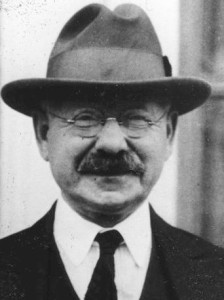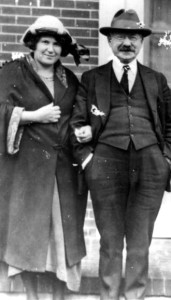Dr. Charles Spivak
Values Codes I – H – E – L – P
Chaim Spivakofski was born in 1861, in the village of Krementschug on the Dnieper River in the Russian Ukraine.
His parents, Samuel and Deborah Spivakofski, gave their only child a good secular, as well as Jewish, education.
As a teenager, Chaim joined the Socialist Revolutionary Party, attended underground meetings, and read books that the government had forbidden.
Fearing they would be apprehended, Chaim and his friend, Victor Yarros, got themselves smuggled across the Russo-Austrian border – then to Hamburg, taking the first ship to New York City, where they arrived in 1882.
Along the way
Chaim Spivakofski became Charles Spivak.
Charles Spivak found a job in a New York factory, but soon went to Maine where he worked in a woolen mill.
Libson Falls, Maine, was his “introductory school,” where he learned to read and speak English.
He entered Jefferson Medical School in Philadelphia, graduating in 1890.
Dr. Charles Spivak established himself as a specialist in gastrointestinal diseases, and by 1895 was chief of that department at the Philadelphia Polyclinics.
Denver, Colorado
In 1892, Charles married Jenny Charsky.
Because of her poor health, they moved to the clean air of Denver, Colorado where her health improved.
Besides his gastroenterology practice, Dr. Charles Spivak taught anatomy at the Medical School of the University of Denver.
When Dr. Spivak arrived in Denver, he discovered a great lack of medical books.
He devised a procedure called the “Union Catalogue Plan,” where all the medical books in Denver were listed, who had each one, and when they could be available for research.
The J.C.R.S.
In 1904, Dr. Spivak was one of the founders of the Jewish Consumptive Relief Society’s Sanatorium (J.C.R.S.).
He sought a warm personal tie with those in the hospital, and they regarded him as a sincere friend, as well as a physician.
J.C.R.S. accepted patients in advanced stages of tuberculosis, while the other Jewish sanitarium limited admission to those in the earlier stages of the disease.
From the time of its establishment until Dr. Spivak’s death, he was the hospital’s prime mover, constantly campaigning to make the sanatorium a recipient of national Jewish charities..
During an operation, it was discovered that Dr. Spivak had cancer of the liver and only a short time to live.
In his remaining days,Spivak completed his plan to serve medicine and humanity in death, just as he had in life.
His will gave specific instructions:
“That my body be embalmed and shipped to the nearest medical college for an equal number of non-Jewish and Jewish students to carefully dissect. After my body has been dissected, the bones should be articulated by an expert and the skeleton shipped to the University of Jerusalem, with the request that the same be used for demonstration purposes in the department of anatomy.”
— Last Will & Testament of Dr. Charles Spivak
Civic
Dr. Charles Spivak was a member of the Denver Hebrew Speaking Society.
Community
In 1913, Spivak was instrumental in the establishment of the Denver Jewish News.
Family
Charles Spivak married Jenny Charsky in 1892.
Together they had three children, David, Deena, and Ruth.
Dr. Charles Spivak died in 1927.
His son, David, accepted responsibility of fulfilling his father’s request.
Dr. Charles Spivak’s skeleton is at the Hebrew University of Jerusalem and the rest is buried on the grounds of the J.C.R.S.
Source
- Marjorie Hornbein, “Dr. Charles Spivak of Denver: Physician, Social Worker, Yiddish Author,” Western States Jewish Historical Quarterly 11/3.


